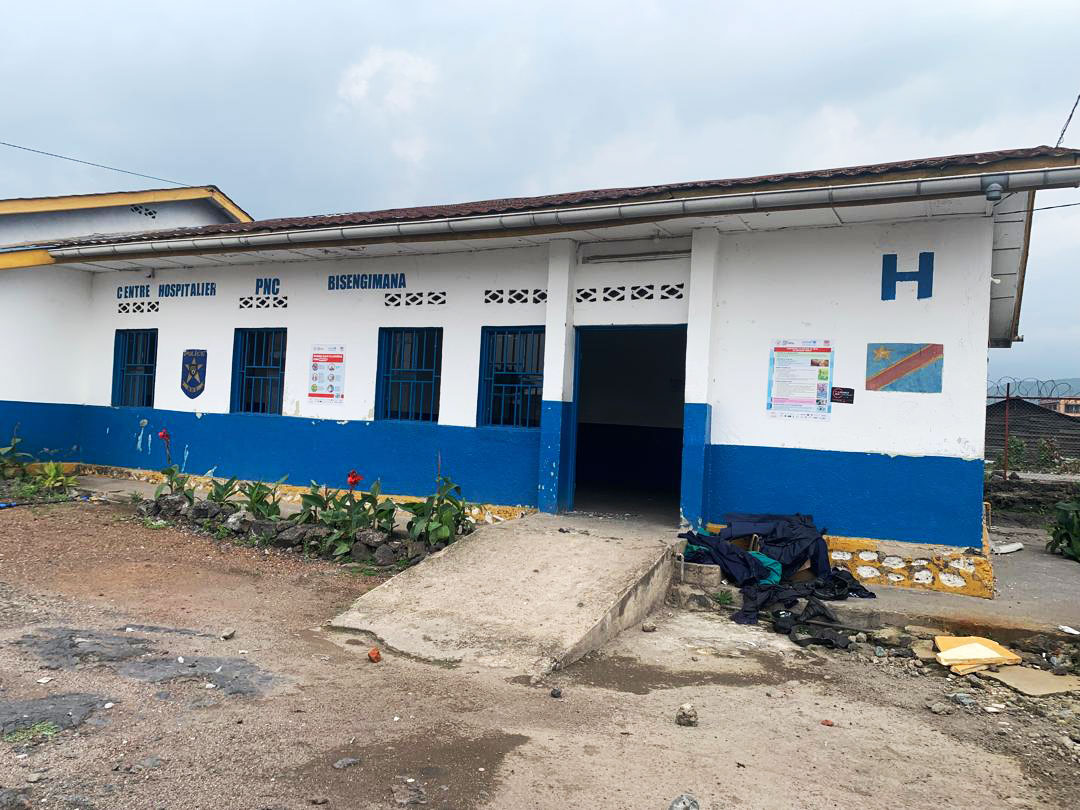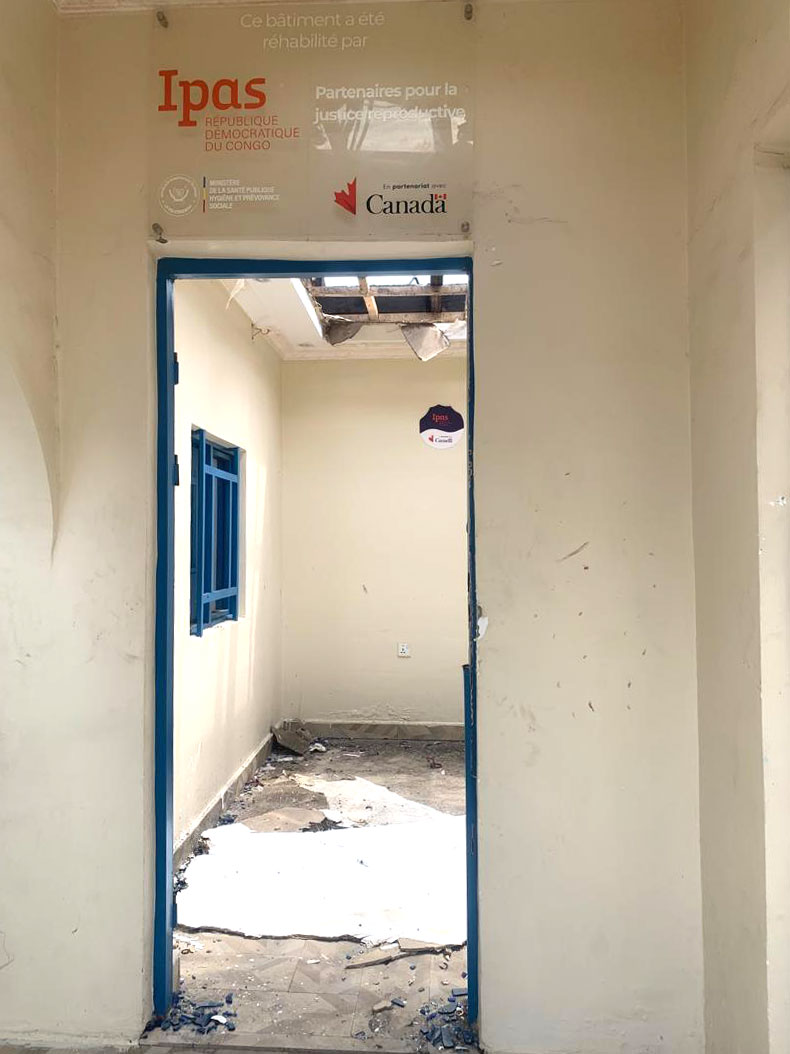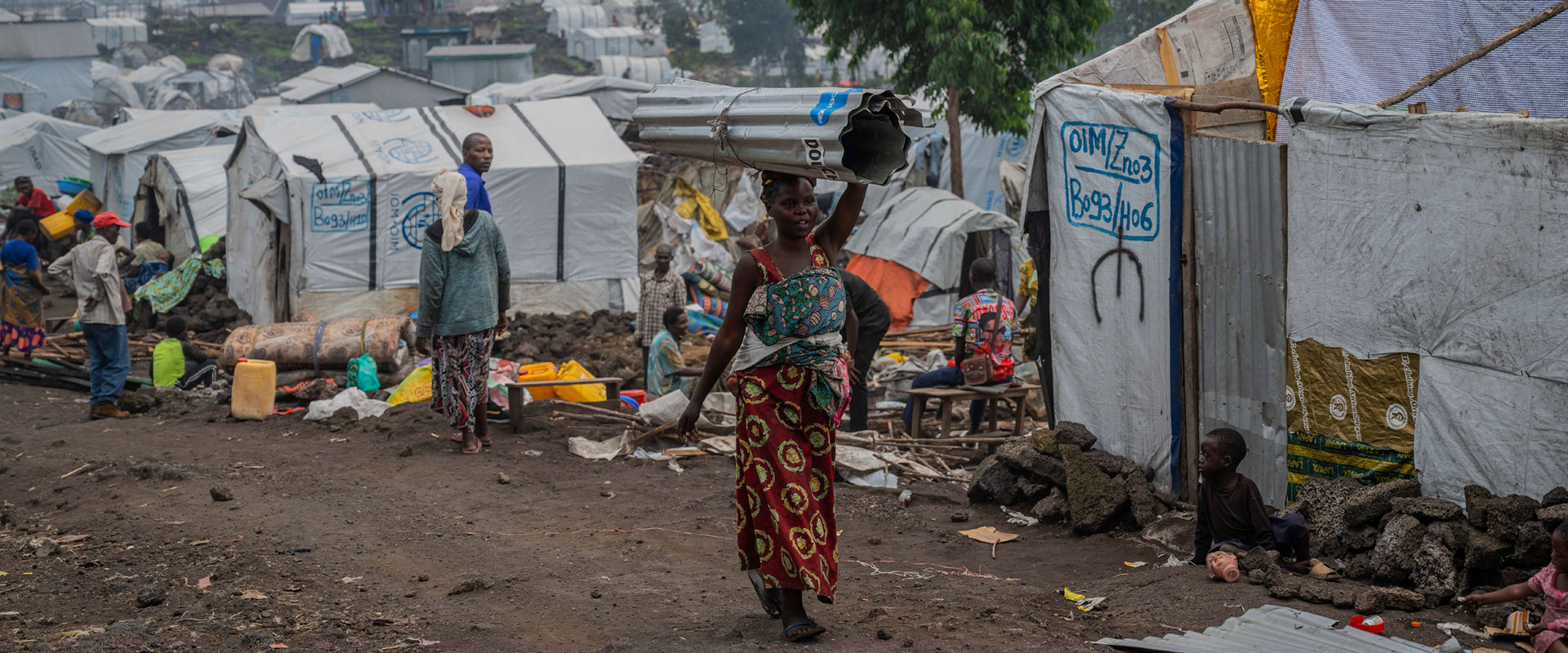In January 2025, violent clashes broke out in Goma, the capital of the Democratic Republic of Congo (DRC) and North Kivu province, worsening a decades-long conflict and leaving a devastating trail of suffering and destruction.
Ipas DRC has been operating under perilous conditions since the conflict escalated. Fighters forced the closure of a mobile clinic in Bulengo, a camp for Internally Displaced People (IDP) located in the western side of Goma. Within a few days, this closure caused massive population displacement of people who had already been forced to flee their homes.
While mobile clinics outside the Bulengo camp continue to function, they face a myriad of challenges, including:
- A massive influx of surgical patients, hindering access to other services, including sexual and reproductive health.
- A shortage of medical workers, some of whom fled to neighboring countries because of the conflict.
- A shortage of contraceptives due to limited stocks.
- The looting and destruction of health facilities, including Ipas’s one-stop health center.
- The closure of banks and airports and the looting of humanitarian warehouses, severely impacting the availability of commodities.

Uniform abandoned by policemen who were also medical personnel at the clinic.

The One Stop Center closed by rebel fighters where Ipas had been providing vital reproductive health services.
The UN Refugee Agency (UNHCR) estimates that nearly 300,000 have been displaced since the beginning of the escalations. Among the displaced are women and girls, who are often disproportionally affected by humanitarian crises. As rape and sexual violence are used as a weapon of war, abortion access is critical in humanitarian settings such as this.
Throughout the fighting, Ipas DRC has remained committed to providing sexual and reproductive health care to women and girls. Our health-care providers worked 24 hours a day, seven days a week, to provide sexual and reproductive health (SRH) services, including comprehensive abortion care and family planning services at Ipas-supported sites, namely the North Kivu Provincial Hospital, the Virunga General Hospital, the Kivu Lac Community Health Center, the Bulengo mobile clinic and other health facilities.
Dusabe Francine, an Ipas-trained nurse who lived in the Bulengo camp and worked in the Ipas mobile clinic there, is one such health worker who has tirelessly and bravely continued providing SRH services when called upon, handling up to 10 cases of safe abortion per week.
“We worked in the mobile clinic from 8 a.m. to 7 p.m. The climate is not good, but the needs are still there, so we try to protect ourselves and the women who are facing violence,” Francine says.
How Ipas mitigated the challenges
Ipas DRC established a permanent contact system between the providers on the ground and our health system officer. We developed a briefing including a daily security situation assessment and commodities management evaluation. The contingency plan also contained measures for commodity stock-outs. Ipas DRC is working closely with OCHA and DKT for medication and equipment supply, as this remains one of our biggest challenges.
The partnership with OCHA and DKT will ensure the supply of commodities to our various sites for at least three months.
Measures were taken and a contingency plan developed to ensure the safety of Ipas staff, which included working from home despite challenges like a province-wide internet blackout, as well as a water and electricity shortage.
While sexual and reproductive health and rights (SRHR) care remains a high priority for IDP women and girls, in-person or mass activities are not feasible for security reasons. To address the SRHR services gap, we organized an online meeting with the Youth Sprint Coalition, a national youth-led movement comprised of 25 organizations across the DRC committed to providing reliable SRHR information and referrals, to plan community support through a digital awareness campaign.
READ MORE: Healing in the heart of conflict: A typical day for Ipas DRC’s Dr. Buyibuyi


